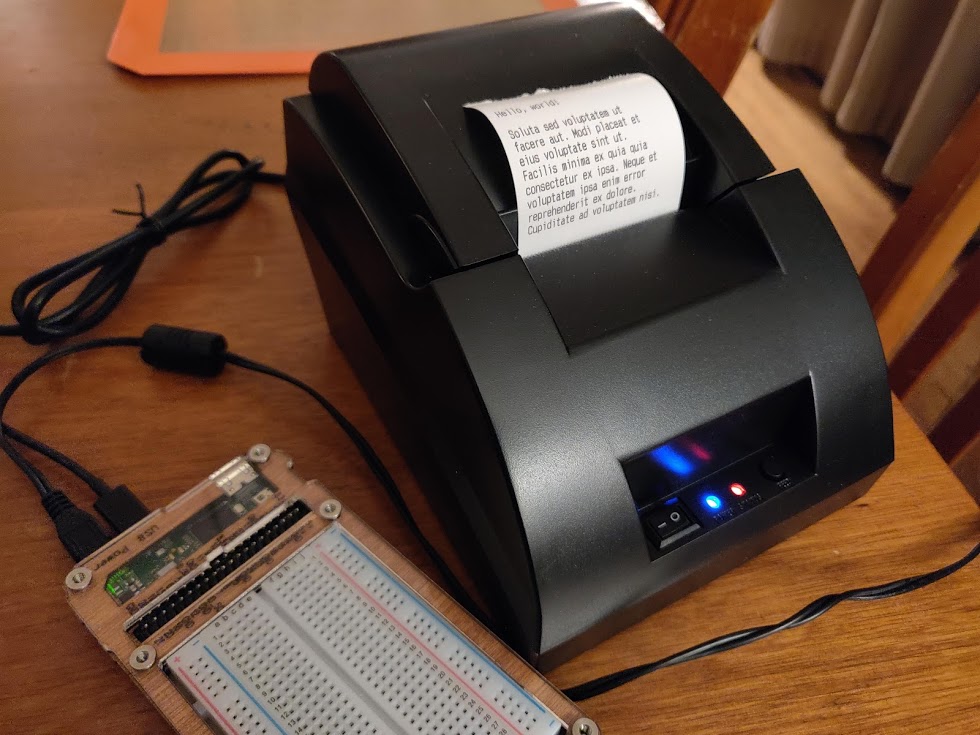
Driving a USB Thermal Printer with Linux/Raspberry Pi
This is a demo program to print to the POS58 (aka ZJ-5890K) USB thermal receipt printer using Python under Linux (tested on a Raspberry Pi). This is printer is sold under different companies, but is made by Zjiang.
This has been tested on LinuxMint 18, a Raspberry Pi 3 B+ running Raspbian Stretch Lite, and a Raspberry Pi Zero W (pictured below).
The Zjian Linux Driver Has Problems
Their Linux driver has problems:
-
Their installer connects the printer to the wrong port so it never prints. (You need to go into CUPS manager and fix the port path.)
-
Their driver uses the printer in graphics mode and their font rendering looks really terrible for small text.
-
Using CUPS adds unnecessarily complication, like adding left, right and bottom margins
Direct USB Printing
This demo program turns it into a very simple text printer by opening the USB port and writing directly to the USB endpoint of the printer device. You can include Epson ESC/POS sequences and graphics yourself to get fancy.
Download Demo Code
Download my demo program at my github site.
Linux Configuration
Special configurations are usually handled by an installation script. I offer no install script, but you can configure this stuff manually:
Add your user to the Linux group “lp” (line printer), otherwise you will get a user permission error when trying to print.
sudo addgroup <myusername> lp
Add a udev rule to allow all users to use a USB device that matches this vendor ID and product ID. Without this rul, you will get a permissions error.
Example: in /etc/udev/rules.d create a file ending in .rules, such as 33-receipt-printer.rules with the contents:
# Set permissions to let anyone use the thermal receipt printer
SUBSYSTEM=="usb", ATTR{idVendor}=="0416", ATTR{idProduct}=="5011", MODE="666"
Unplug and re-plug the USB connection of the printer to run the new udev rule.
Python setup
This code is mainly from the example code at https://github.com/pyusb/pyusb
See that site to install pyusb and a USB backend. This was tested using usblib 1.0. Quick reference:
Install pyusb to your Python (suggest using virtualenv):
pip install pyusb
Install libusb 1.0:
sudo apt install libusb-1.0-0-dev
And that’s it. Happy printing!
Comments